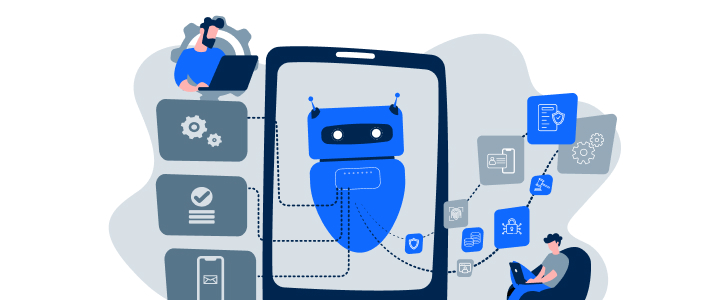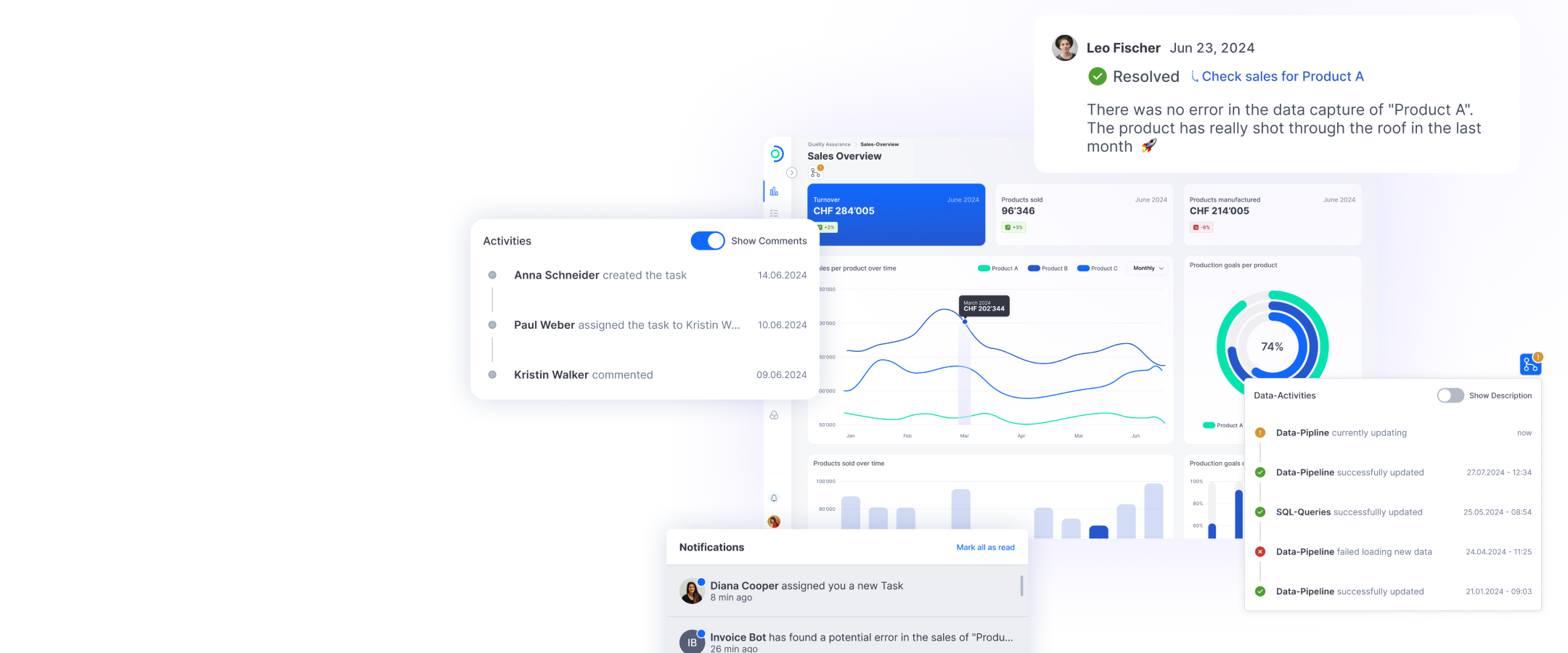Data-driven banking: From key elements to the right strategy.
The migration of data to the cloud, open ecosystems in banking and wealth management, and improved and more cost-effective use cases for artificial intelligence are the technological drivers in banking. In this white paper, ti&m, together with Google and HSLU, analyzes various aspects of data-driven banking and explains how banks can implement their individual strategy.
The 4 parts of our data-driven banking white paper strategy.
Part 1
The state of data-driven banking and regulatory aspects
Read in which areas of the Swiss financial world AI-based use cases are already widespread and which regulatory aspects need to be considered in data governance and compliance.
Part 2
The three technological drivers for data-driven banking
Whether cloud, open ecosystems or the application of artificial intelligence: the fundamental resource of the three drivers is data. Learn all about the different types of data and the collection, analysis and use of data in a suitable data architecture that allows data-based projects to be implemented.
Part 3
Regulatory aspects of a successful data-driven banking strategy
Financial service providers in Switzerland must carefully consider regulatory aspects in their decisions and continuously adapt to their changes. In the white paper, we take a closer look at the Financial Services Act (FIDLEG) and the Financial Institutions Act (FINIG) as well as data control and management.
Teil 4
Use cases and pathway to becoming a data-driven bank
By presenting specific use cases, we show how banks can reduce costs, minimize risks, and increase revenues through a data-driven banking strategy. The path to such use cases? The MVP (Minimal Viable Product) approach from ti&m, in which interdisciplinary teams develop an initial, marketable solution within 12 weeks.
Download our white paper on data-driven banking

Breakfast news data-driven banking
Watch now the recording of our data-driven banking event. (German)







